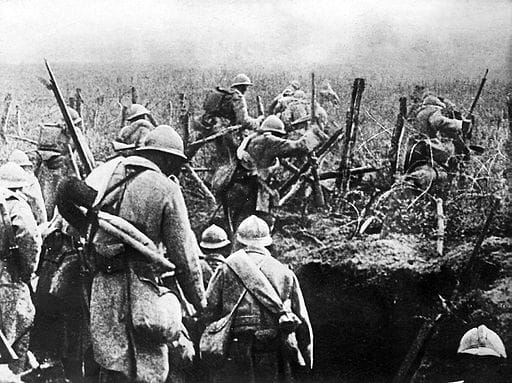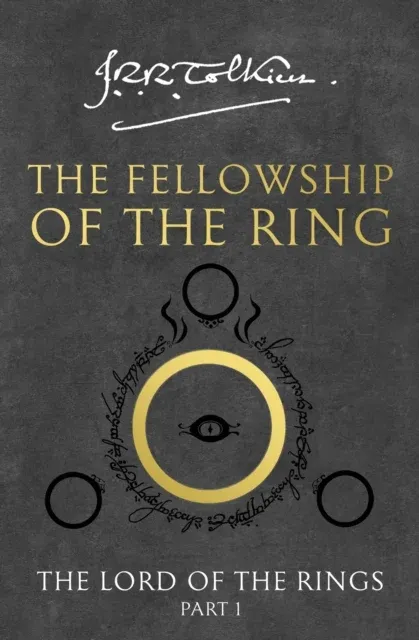World War I and the 1920s

World War I
World War I was one of the most destructive wars in the world's history. It started in 1914 following the assassination of Archduke Franz Ferdinand, the heir to the Austro-Hungarian throne in Sarajevo, Serbia. The United States was neutral during this war until the spring of 1917, when it joined the Allies to fight against Germany after the RMS Lusitania, a British passenger ship carrying American tourists (as well as 173 tons of ammunition), was sunk off the coast of Ireland, and the Zimmermann Note, a proposed German deal with Mexico to help the recover territories lost to America if they won WWI, was discovered. Another factor for America going to war was the unrestricted submarine warfare that Germany was using against merchant ships traveling to Britain and France.
The sinking of the Lusitania was a very controversial topic in 1915, when the ship was (probably) torpedoed by the German U-20 submarine. After all, this ship's sinking was one of the reasons why America entered the war on the side of the Allies, and it was a symbol for how destructive the unrestricted submarine warfare employed by the Germans was. However, some believe that the Lusitania was sunk on purpose to get America to join the war. Firstly, the Lusitania wasn't warned of the sinking of two other vessels, the Centurion and the Candidate, which were near its location. The Lusitania was also not following instructions designed to minimize the risk of being sunk by a submarine, such as zig-zagging to become a harder target and avoiding shallow water and headlands. The ship was also carrying munitions, and, as a British ship, it was warned before leaving New York that it would be in danger of being attacked by submarines in waters adjacent to the British Isles.
During WWI, the American government expanded greatly in its influence over the American people. It took control of many companies and agencies related to the war to expedite the manufacture and transport of machinery and troops. It also introduced new taxes and increased other taxes to help fund the war, such as income tax, which was first introduced in 1913 and only really came into effect in 1917. Even though this was an act designed to help fund the government in WWI, the income tax was never removed, and the government continues to use many powers it gained during wartime to this day.
Another controversial topic in the United States during the war was that of the Espionage Act (1917) and Sedition Act (1918). Under the Espionage Act, anyone convicted of aiding the enemy, obstructing military recruiting, or inciting rebellion was subject up to a fine of $10,000 and up to 20 years in prison. This, in itself was not too controversial, but the Sedition Act, meant to expand the power of the Espionage Act, was very controversial because some argued that it violated the First Amendment of the Constitution, the right to free speech. The Sedition Act made it illegal to speak up against the purchase of war bonds or to "utter, print, write or publish any disloyal, profane, scurrilous or abusive language" about the government.
The League of Nations and Versailles Treaty
President Wilson's "Fourteen Points" were a set of ideas he thought would be necessary for world peace after WWI. Ideally, these points had very good ideas for keeping the peace throughout the world, but many Allied countries thought that it was too lenient on Germany, which, many considered had started the war. I think that the most important points were the first and second, as one of the largest reasons for the war in the first place was the secret treaties that the first point wanted to get rid of, and the second point was important for America, as German submarines sinking merchant vessels was one of the reasons why they got into the war in the first place.
I. Open covenants of peace, openly arrived at, after which there shall be no private international understandings of any kind but diplomacy shall proceed always frankly and in the public view.
II. Absolute freedom of navigation upon the seas, outside territorial waters, alike in peace and in war, except as the seas may be closed in whole or in part by international action for the enforcement of international covenants.
However, these could also be interpreted as some of the least realistic points in the whole set. The least important point, in my opinion, is the fourteenth one, introducing the idea of a "general association of nations" that would guarantee "political independence" and "territorial integrity" to the rest of the countries of the world.
XIV. A general association of nations must be formed under specific covenants for the purpose of affording mutual guarantees of political independence and territorial integrity to great and small states alike.
The Treaty of Versailles used some of Wilson's fourteen points, but gave Germany a much harsher treatment than Wilson envisioned. Germany was placed with the full blame for the war and was forced to pay reparations to the Allied countries for damages incurred by the war, which totaled to 132 billion gold marks, or around $1.052 trillion in today's money. The German people were mostly angry about the full blame of the war being placed upon them. This anger towards the Treaty initiated the rise of the Nazis, many of whom thought that Germany would have won given enough time.
The Treaty of Versailles was very controversial in America, as many Republicans such as Henry Cabot Lodge did not agree with America's entry into the League of Nations, which would break its former policies of isolationism. The most significant of Cabot's points were the second, fourth, and ninth points, respectively stating that:
- The United States assumes no obligation to preserve the territorial integrity or political independence of any other country or to interfere in controversies between nations–whether members of the League or not -- under the provisions of Article 10, or to employ the military or naval forces of the United States under any article of the treaty for any purpose, unless in any particular case the Congress, which, under the Constitution, has the sole power to declare war or authorize the employment of the military or naval forces of the United States, shall by act or joint resolution so provide.
- The United States reserves to itself exclusively the right to decide what questions are within its domestic jurisdiction and declares that all domestic and political questions relating wholly or in part to its internal affairs, including immigration, labor, coastwise traffic, the tariff, commerce, the suppression of traffic in women and children, and in opium and other dangerous drugs, and all other domestic questions, are solely within the jurisdiction of the United States and are not under this treaty to be submitted in any way either to arbitration or to the consideration of the Council or of the Assembly of the League of Nations, or any agency thereof, or to the decision or recommendation of any other power.
- The United States shall not be obligated to contribute to any expenses of the League of Nations, or of the Secretariat, or of any commission, or committee, or conference, or other agency organized under the League of Nations or under the treaty or for the purpose of carrying out the treaty provisions, unless and until an appropriation of funds available for such expenses shall have been made by the Congress of the United States.
In other words, Cabot wanted America to remain separate from the affairs of the League, especially in the matters of military actions and the funding for the League. He also wanted to make sure that if the United States joined, it would still retain independence in its own affairs.
Wilson's idea of the League of Nations and his government's conduct during the war echoed Progressive ideals of an effective government that would oversee and regulate many aspects of life and business previously left alone. Government control of businesses during the war and various laws passed during this time such as the Espionage Act and Sedition Act highlighted the focus of Progressive policies. The League of Nations also highlighted the Progressive ideas that America should participate more in international politics, something which the conservative Republicans, like Henry Cabot, disagreed with.
The 1920s
After WWI, President Wilson attempted to get peace in Europe with the idea of the League of Nations, which would have been a sort of precursor to the United Nations of today. However, the plan failed, and Wilson was unable to get enough supporters in the United States for joining this League. The 1920s were called the "Roaring Twenties" for a reason, as most Americans became wealthier. The average middle-class family was now able to purchase an automobile or refrigerator or vacuum cleaner. However, farmers did poorly during this time, as the price of crops continued to fall. Prohibition of alcoholic beverages was also introduced during this time, although that saw limited success, especially in rural areas where many were engaged in the illegal sale of "bootleg" beverages and moonshine.
Life in the 1920s
The 1920s were called the Roaring Twenties for a reason, as economic growth in America made many people richer. This, in turn brought many social changes, as many people abandoned the social and moral ideas of the Victorian Era, sparking a society of consumerism.
One of the most important inventions during the 1920s was the mass-produced automobile and the assembly line in factories, both invented by Henry Ford, the founder of the Ford motor company. The first model he made was the Model T, which was affordable and accessible to many people.
The Prohibition attempted to counter some of the evils of society by banning alcoholic beverages, which many people saw as causing many problems. This Prohibition was successful in lowering America's average consumption of alcohol, even after it was lifted, but people were still able to get drinks from secret taverns called speakeasy bars. Crime also increased during this time, as many started in crime by smuggling alcohol, like the notorious gangster Al Capone.
The 18th amendment, ratified in 1917 started Prohibition, banning the sale and production of alcoholic beverages in the United States. Prohibition was intended to lower alcohol abuse and crime rates by eliminating the influence of these drinks, but, in practice, it was very unpopular and many turned to criminal activities to acquire alcoholic beverages. The 21st amendment, ratified in 1933, repealed the 18th amendment, as it was not effective.
The 19th amendment, passed in 1920, was the culmination of over 70 years of campaigning for the women's right to vote. This campaign started in 1848, with the Seneca Falls Convention, which produced the Declaration of Sentiments, formally requesting the right to vote. In 1878, an amendment was proposed to Congress that would give women the right to vote. However, this amendment was only ratified in 1920, mainly because many states passed laws allowing women to vote and because of the women's significant role in the war effort in WWI.
A perceived threat to America during this time was the threat of the "Reds", or people speaking out for Communist ideals. This was frowned upon because of the example of Communist Russia, where the only ones benefiting from this system were the government workers, everyone else was suffering. Because of this, harsh measures were proposed to silence the "Reds", even including deportation.
The Presidents during this time were Warren G. Harding, Calvin Coolidge, and Herbert Hoover. Harding was best known for implementing postwar changes, such as creating a federal budget system and lowered taxes. After Harding suffered a heart attack in San Francisco, his vice president, Calvin Coolidge, became president. His most famous policy was his commitment to maintain the current state of affairs in America, which was benefiting the nation. Herbert Hoover, on the other hand, was famous for being president during the stock market crash in 1929. Hoover tried implementing policies to fix the struggling economy, but was not able to do so in his presidency.
One example of a reactionary president was Calvin Coolidge, who worked to restore America's economy to what it was previous to WWI. During the Great War, the federal government took control of companies related to the war effort and raised taxes in order to expedite the production and transportation of necessary materials and finance the War. However, in Coolidge's term as president, he attempted to restore the previous economic system that existed before the Great War, lowering taxes and government spending, paying some of the national debt, and imposing tariffs, which ended up increasing the country's gross domestic product from $85.2 billion to $101.4 billion.
African-Americans in the War and the 1920s
African-Americans in WWI were still segregated, being placed in their own squadrons, which were mostly used for support actions. When coming back from the war, many of these African-American soldiers helped protest against segregation and discrimination in America, even helping found an army officers' academy in Iowa. During the war, African-American association NAACP fought to remove grandfather clauses and lessen segregation in American cities.
On September 30, 1919, a group of African-American sharecroppers campaigning for better wages were attacked by landowners in the town of Elaine, Arkansas. During the gunfight with the sharecroppers, one of the landowners was killed, leading to soldiers from a nearby army camp being called in and killing at least 200 African-Americans in the town. This incident was not alone in America during this time, as African-American World War I veterans campaigning for their rights at home were often subject to reprisals. Later, many African-Americans left the South to find work in factories in the North and Northwest (for example, New York and Chicago) and also to escape the discrimination and harsh conditions there.
On May 31, 1921, in Tulsa, Oklahoma, a man named Dick Rowland was arrested on charges of assault on a white elevator operator named Sarah Page the previous day. A rumor that Rowland would be lynched prompted a group of African-Americans to gather outside the courthouse, some of whom were armed. A gunfight broke out. The African-American gunmen retreated into the Greenwood District, a prominently black district, which was later burned down by a mob.
One important African-American during this time was Marcus Mosiah Garvey, the inventor of African Fundamentalism, which encouraged black people in America to look upon their African heritage with pride instead of shame. He also founded the Universal Negro Improvement Association and African Communities League, or UNIA, in Jamaica in 1914, of which many important people in the Harlem Renaissance were part.




